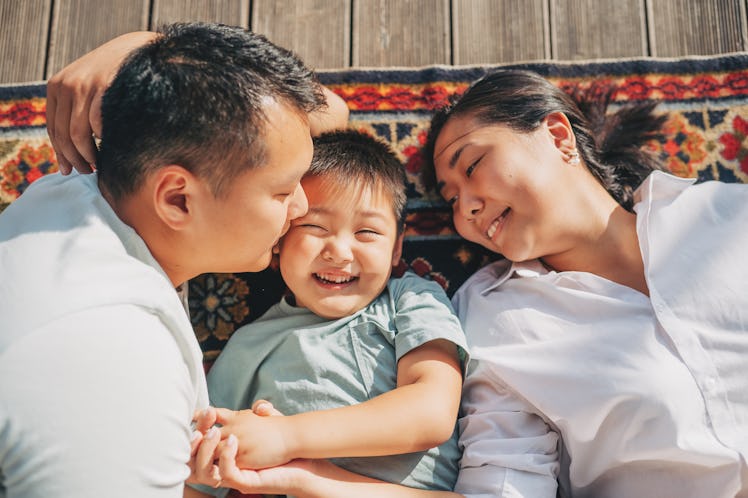When Dads Treat Their Depression, The Whole Family Benefits
Depressed dads are more likely to have depressed kids. But getting help reduces the risk.

During pregnancy and the months after a baby is born, its routine to screen moms for signs of depression or other mental health issues. But fathers’ mental health doesn’t receive as much attention during this time, despite the fact that about one in 10 dads will develop postpartum depression. A recent study suggests that there’s a very good reason to screen dads for depression: The children of depressed men carry a significantly higher risk of developing the disorder themselves, but dads getting help can lower that risk.
The study, from researchers at Curtin University in Australia, found that the children of dads with depression have a 42% higher risk of being depressed themselves compared to kids of dads who don’t have depression.
“This finding shows the intergenerational transmission of mental health problems and suggests that mental health interventions benefit not only the patient but also the family as a whole, including both parents,” the study authors wrote.
Although it’s “not at all surprising” that depressed dads are more likely to have depressed kids, the study highlights the longstanding issue that many men are reluctant to seek treatment for depression — and the deleterious effects that has on their kids, says Anil Chacko, Ph.D., chair of the applied psychology at New York University and a senior psychologist at The Attention Group, who was not involved with the study. Fortunately, Chacko adds, that’s starting to change with younger generations of men becoming more open to mental health treatment.
Dads with depression can pass risk factors to their kids through shared genes. They can also influence epigenetic changes to their child’s DNA, or reversible changes to how a person’s body reads their DNA. A dad’s depression may lead him to be a less attentive parent, which could directly impact a child’s brain functioning and also lead to epigenetic changes that predispose that child to depression, Chacko says.
“If you have a little kid who's crying, if you're depressed, you're in your head, you're isolated, you may not pick up on the crying, and that's not healthy for prolonged periods when the child has a need that’s not met by the parent,” he says. “Your parental behavior tends to be sort of passive and inconsistent.” Because even if a depressed dad picks up on his baby’s crying, he might not be as engaged in comforting the baby or meeting their needs. He might just get angry at the baby’s wailing, for example.
Fathers with depression are also less likely to support their partners, placing extra stress on them because they have to take on more parental responsibility. That extra stress on the other parent, Chacko says, is likely to make them less sensitive, consistent, and responsive to their child’s needs as well. That means neither parent will be at their best to take care of the baby.
This is why it’s vital for fathers to seek help for their depression as early as possible — the effects only pile up. But as Chacko points out, it’s never too late. After all, the job of parenting doesn’t even end when a child becomes an adult.
If you know a dad who may be depressed but hasn’t sought help — or if you’re that dad and are having a hard time reaching out — focus on the consequences of a man’s untreated mental health problems on his children.
“Our work suggests it’s most helpful not to frame things around the father’s own mental health, because men will dismiss it,” Chacko says. “I'm a dad of teenage boys, and I’m much more likely to change my behavior if I know it has a significant impact on my kids.”